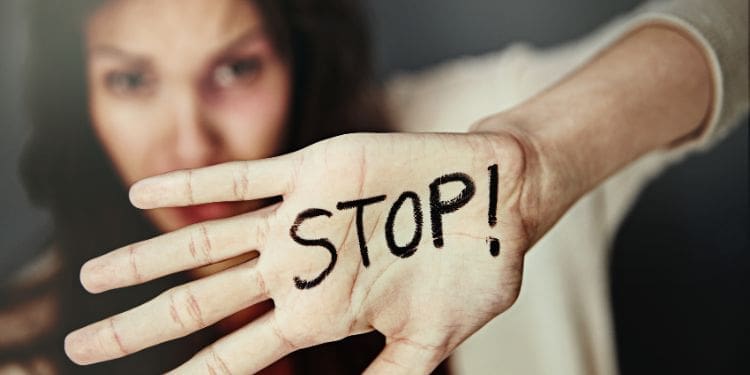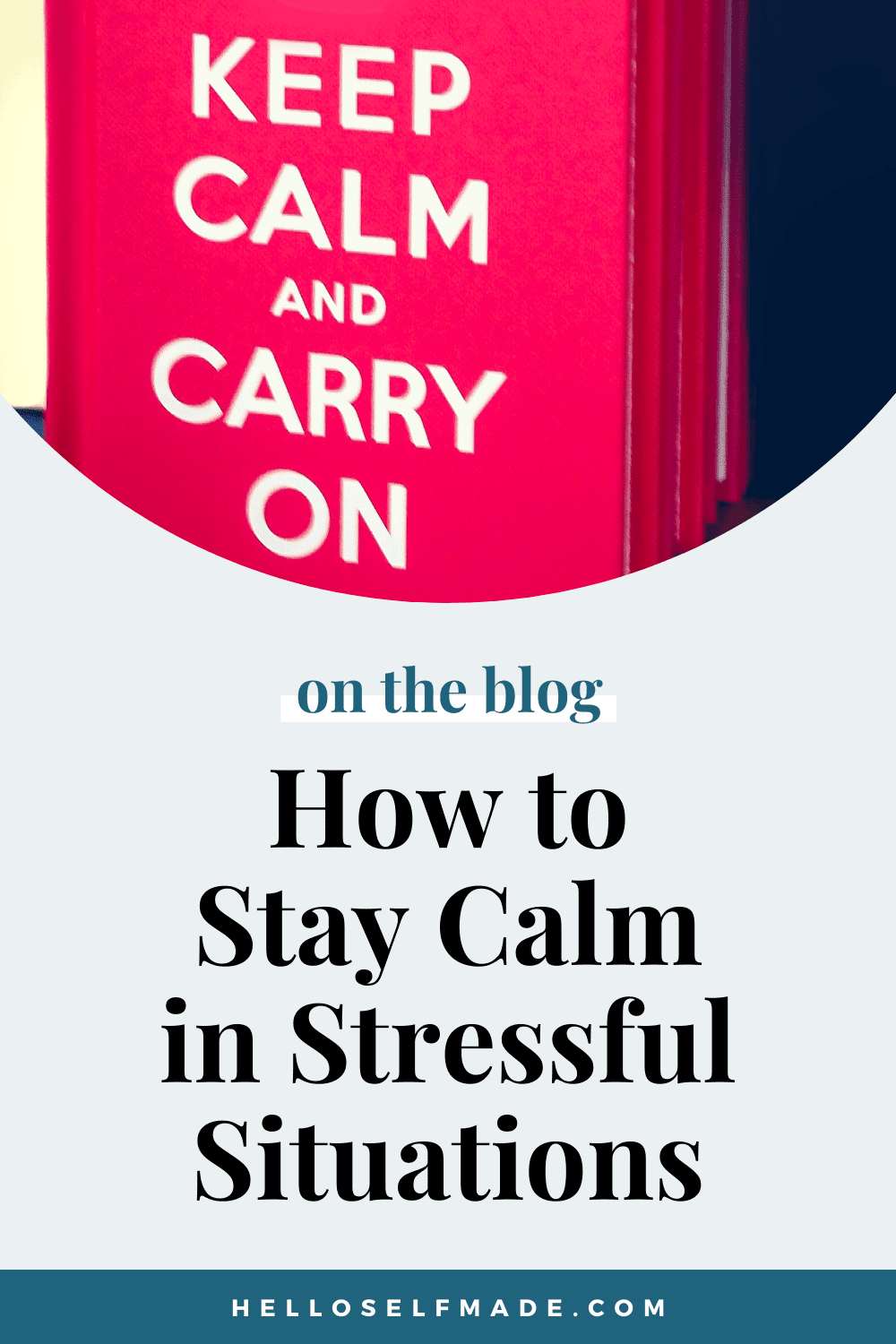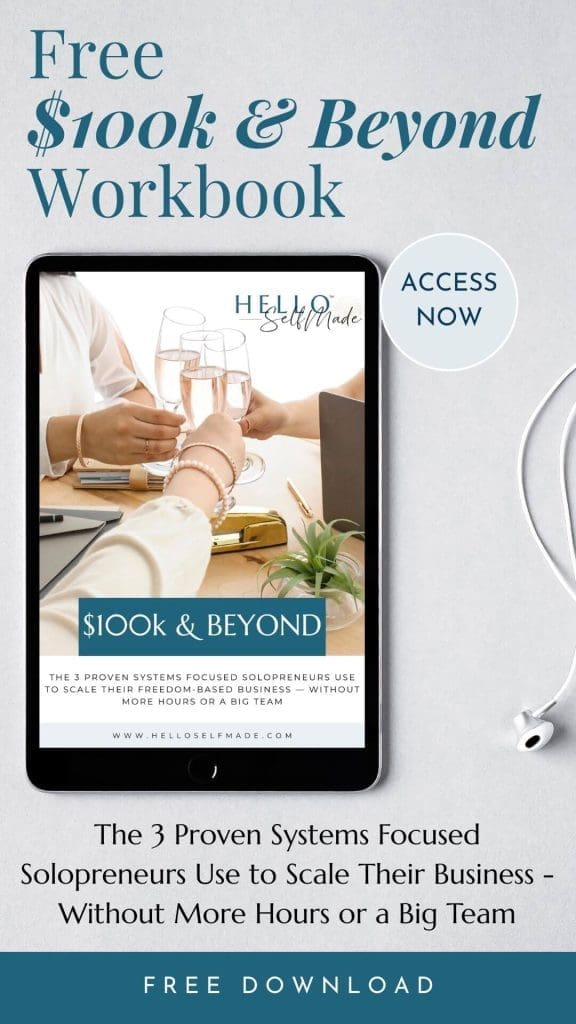Sure, overcoming the stress in your life starts with noticing what your stressors are and working to reduce them, but you can’t prevent every situation that could potentially cause you stress because, well, shit happens!
Your body’s natural response to certain situations can be a fight or flight response, but you still need to get out there and live your life, right?
- Maybe your kid falls off their bike and breaks their wrist and you end up in the emergency department when you had work to do (my son did this, twice!).
- Someone runs a red light and t-bones you on your way to your facial appointment (No one was hurt, my car was repairable).
- Your step-dad has a heart attack and you have to tell your mother that he died (very sad story, but also happened to me).
I handled all these situations without losing my head. Yes, I was upset. No, it wasn’t easy for me. But remaining calm made these situations easier more managable. Stressful situations are something that all of us have to deal with, so it is more a matter of how you react to stressful situations when they arrive.
Keep reading to learn how you can remain more calm and relaxed even when incredibly stressful things are happening around you.

 Stop Your Body and Thoughts
Stop Your Body and Thoughts
When a stressful situation hits you, if may not seem like it but you do have the opportunity to choose how you are going to handle it. How you think, feel, and even how your body reacts is all up to you. If you immediately react in the negative, it is going to increase your stress hormone, and make you feel a lot worse and much more overwhelmed.
Instead of reacting instantly, just take a step back. Freeze your body and your mind, and just let your thoughts calm down. Don’t try to reason through it, don’t think about the potential future or make assumptions, and don’t start letting all those regrets run through your head.
Just get into a calm place, whether you freeze your body, or try to meditate or use mindfulness practices. This can help you to get back to neutral, where you are able to think logically with whatever the stressful situations is.
In the example above of my car accident, I’d just had a nasty fright. Adrenaline was coursing through my body and my first response might have been to abuse the person who had just parked their yellow bonnet in the driver’s side of my car. Instead, I paused. Noted that I was physically okay. I accepted that my body had just released fight hormones into my system in response to a threat to my survival, then took a few breaths and waited a moment before doing anything. Once my body had started to calm down, then I responded kindly to the woman who was motified that she had caused the accident by running a red light, which she repeatedly thanked me for.
If you’ve reacted before you managed to catch yourself, don’t dwell on it. Apologize (if necessary), and move on. Most people will understand because most of us have been there!

 Find Positivity
Find Positivity
Being positive has a wonderful impact on your mind and emotional health, as well as helping you to handle stress. Being positive doesn’t mean constant sunshine and rainbows. You can understand that life isn’t always perfect, accept your flaws, and move past them. You even understand that stress is a normal part of life since unexpected things happen all the time.
However, instead of letting the stress affect you mentally and physically to an extreme level, you can remain calm by remaining positive. Just try to think of some type of positive element, whether you go through a list of pros and cons, or you simply try to find the one thing that could be good about the stressful situation. Trust me, there is at least one. I’ll give you some examples.
When my son broke his wrist, he and I ended up spending alone time together and had lots of laughs with him trying to eat a bag of chips, failing, and me having to feed him, along with lots of chatting about all sorts while we sat in the waiting room. The experience was also interesting as we learned a lot about some of what they have to do to reset a bone (they had to numb his arm and pull it to reset the bone, it took 4 or 5 people to look after him and I was amazed that all these people were helping my boy).
When my step-dad died, yes it was an awful thing to lose him, but it was a gorgeous summer day and it heart warming to see how the family rallied together, people dropped everything in their life and few miles to all come together within a day. It was such a sad day, but it was also such a beautiful day filled with so much love.

![]() Stop with the Assumptions and ‘What If’ Questions
Stop with the Assumptions and ‘What If’ Questions
Stop asking what if, and making assumptions every time anything happens. This is going to lead to a lot of anxiety and stress that otherwise might not have been that bad. If you feel that you have constant stress all day, every day, ask yourself where it comes from. Is it from things constantly happening around you, or is the way you perceive things?
Write down in your journal the next time you experience a stressful situation what actually happened. Not what could have happened or what you feared would happen, but the actual situation you dealt with. More often than not, your fears and what if scenarios were far worse than the reality.
When a stressful situation happens, the best thing you can do is just stand back, remain present, and be realistic with what has already happened. Don’t assume the worst case scenario or start creating all of these images in your head of what catastrophe might be in store for you. This is definitely adding to the amount of stress you experience on a daily basis.

 Know What Your Stressors Are
Know What Your Stressors Are
You also need to understand more about what is causing you the most stress. By now, you likely have a good idea of where it is coming from, but using a journal can help you determine this with more details and clarity.
Keep a worry or stress journal that you use only to write about your stress. You want to include as many details as you can, such as what you were doing, where you were, what time and date it happened, who you were with, what the situation was, and anything else that is relevant.
Write down things like why it caused you stress, what your mind was doing at the time, and what the outcome was.
Do you notice any patterns? Are there certain things causing you more stress? Is it work or home life? Is there someone in your life that always seems to be around when you have the mot stress? These details will help you figure out your stressors, which in turn helps you know what you need to avoid in the future.






